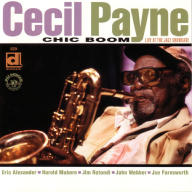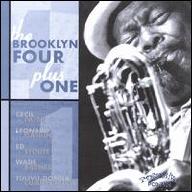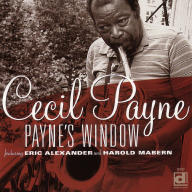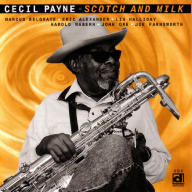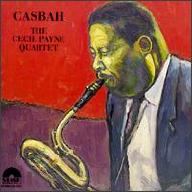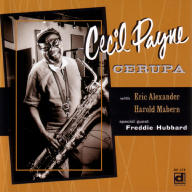After exiting the Gillespie ranks in 1949, Payne headlined a session for Decca backed by pianist Duke Jordan and trumpeter Kenny Dorham. Following tenures with Tadd Dameron and Coleman Hawkins, in 1952 Payne launched a two-year stint with Illinois Jacquet, and in 1956, he toured Sweden alongside childhood friend Randy Weston. That same year, Payne also headlined the Savoy LP Patterns of Jazz. In 1957, he and fellow baritonist Pepper Adams backed the legendary John Coltrane on Dakar. Shortly after the session he abandoned the music business to work for his father's real estate firm and did not return to performing until 1960. The following year Payne joined the cast of playwright Jack Gelber's off-Broadway hit +The Connection, an exposé of the urban drug culture informed by its on-stage jazz performances. From there, he again toured Europe, this time as a member of Lionel Hampton's band, but returned stateside only to resume his real estate work. Payne recorded just a handful of sessions in the years to follow, most notably Zodiac, a superb 1969 date for the Strata-East label. He nevertheless remained a valued sideman, working with Machito from 1963 to 1966 and spending the next two years with Woody Herman. In 1969, he joined Basie, with whom he played for three years.
Payne spent the 1970s on and off the radar, cutting sessions for Xanadu and Muse as well as joining the New York Jazz Repertory Orchestra in 1974. He also toured Europe in conjunction with a musical theater showcase titled +The Musical Life of Charlie Parker. During the 1980s, he focused his energies into Dameronia, a band formed by drummer Philly Joe Jones in tribute to the music of Tadd Dameron. Payne continued with the ensemble throughout the decade, assuming an even greater creative role following Jones' 1985 death. He also rejoined Jacquet for an extended stint, and toured the New York City club circuit with Bebop Generation, a sextet he founded and led. During the early '90s, Payne helmed a series of well-regarded albums for Delmark. However, as the decade wore on he seemed to vanish, and eventually friends and admirers found him living in his Brooklyn home, a virtual recluse suffering from failing eyesight and living on a modicum of food. A proud, fiercely independent man, Payne only grudgingly accepted the financial assistance of the Jazz Foundation of America, but his health quickly improved and in time he returned to performing. He continued playing regularly well into his eighties, passing away November 27, 2007, just weeks shy of his 85th birthday. ~ Jason Ankeny, Rovi



